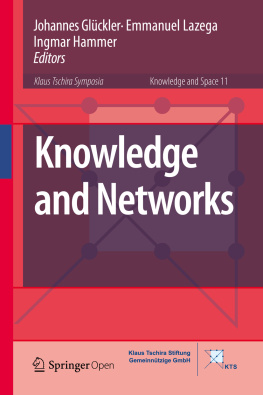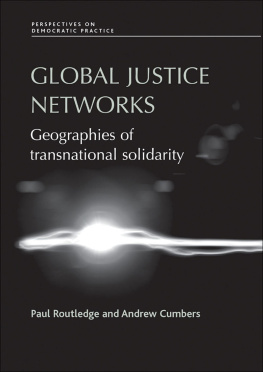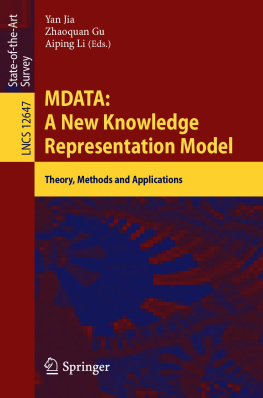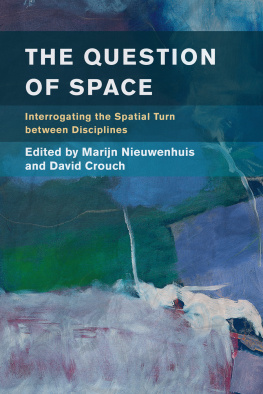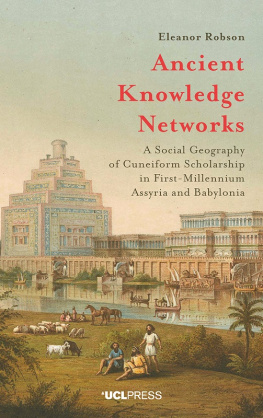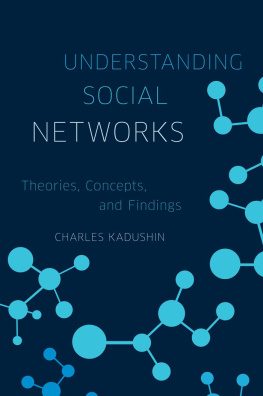1. Exploring the Interaction of Space and Networks in the Creation of Knowledge: An Introduction
A Conversation Between Spatial and Network Perspectives of Knowledge
The book series on Knowledge and Space explores the nature of human knowledge from a geographical perspective. How to create, share, and adopt new knowledge is a core question in the social sciences. Processes of learning and knowledge creation are the result of social practice and always take place in space and in specific geographical contexts. The eleventh volume is the outcome of the symposium entitled Topographies and Topologies of Knowledge in the series of Klaus Tschira Symposia on Knowledge and Space held at the Villa Bosch Studio in Heidelberg. This book focuses on the conceptual and empirical intersections of the geographical and network dimensions of social practice in accounting for the creation and reproduction of knowledge. By taking up this dialogue between the fields of geography and social network studies, the book is conceived to bridge a research gap between two analytic perspectives that until recently have developed more in parallel to each other than in mutual exchange between scholars. The intention of its chapters is to broaden and deepen understanding of the specific characteristics not only of space and connectivity but also of their mutual and interactive effect on knowledge creation.
Geography and Networks
The network perspective has been influential in geography since the 1960s, when formal network analysis was used in what was called network geometry. By adopting the concept of topology from mathematics (Matthes, ) developed a comprehensive approach for the optimization of network geometry, which they considered to be the most interesting research topic of location theory at the time. This research has become an important topic especially in engineering disciplines such as operations research, computation science, mathematics, and economics. Journals such as Networks and Spatial Economics and Operations Research focus on models, techniques, algorithms, and research questions and on ways that production networks, supply chain management networks, infrastructure, and communication networks can be organized and optimized.
Since the 1980s, the research interest in geography has increasingly shifted from material to social connections and from a quantitative to a rather qualitative approach to capturing the multidimensional processes developing in local and global environments. Unlike physical infrastructure, social relationships do not necessarily follow a linear logic by which costs rise or connectivity weakens as distance increases. Geometric distance cannot be accepted as a sufficient condition for determining social interactions. Instead, the availability and use of communication and transport technologies mediate the relationship between physical proximity and social interaction. The relation between space and social interaction depends on the actors choice of technology and mobility (Glckler, ). Today, geography is interested in the quality rather than the physical metrics of social and organizational relations.
Knowledge is a key resource in economic development, prosperity, and wealth (e.g., Jacobs, ). From an economic perspective, such epistemic idiosyncrasies may be sources of competitive advantage in some regions where they foster innovative practice, learning, and economic development, while other regions lag behind and face the challenge of catching up.
Researchers interested in geographys particular role in knowledge creation have studied innovative regions with technological and knowledge clusters such as Silicon Valley (Klepper, , p. 123):
A cough, a dance-motion, a homicidal impulse may be transferred from one person to another even though there is only chance and temporary contact between them. They need have no intellectual or moral community between them nor exchange services, nor even speak the same language, nor are they more related after the transfer than before (p. 141).
In summary, the discipline of geography has developed a deep and diversified understanding of learning, knowledge creation, and innovation in and between places and spaces. Geographical places may become specific milieus (Camagni, ) where people enjoy access to localized knowledge and where they learn from others to come up with new ideas and innovations themselves. But the social and more formal understanding of relational processes has been neglected until recently.
Social Processes, Social Networks, and Distance
In the social sciences the shoe is on the other foot. Whereas thinking of places and spaces has been a matter of physical distance, formal network theory has deepened human understanding of learning and knowledge creation as a social process. In general, social network researchers are interested in the nature, antecedents, and outcomes of social connectivity. Formal network analysis and the conceptual emergence of relational thinking in the social sciences (see Marsden & Lin, ). In a relational perspective the focus is on individual and collective opportunities for action, and these opportunities are thought of as being facilitated by the specific context and structure of social relations.
Beyond early radical relational sociologies, current theories move on, prodded by the founding fathers of contemporary structuralism (e.g., White, ). Generic social processes examined by the social sciences since their emergence (e.g., solidarity and discrimination, collective learning and socialization, social control and conflict resolution, and regulation and institutionalization) are partly the product of the regularities constructed in the management of interdependencies between actors in conflict and/or in cooperation. These processes facilitate the management of collective actions dilemmas at each level of agency. The role of network analysis evolves toward modeling these processes and helping with theorizing them.
Building knowledge in individual and collective learning is precisely one such generic process. Such a theoretical perspective necessarily implies an analytical focus on connectivity in social and economic action. Those new theories and concepts have been the key ground-breaking insights into models and concepts of knowledge creation and knowledge diffusion. How does knowledge about this generic process benefit from this approach? Network analyses from several angles are useful for answering this question. Learning, knowledge creation, and innovation are all fruit of the circulation and interpretation of information, the co-creation of new ideas, cumulative experience, and cognition. People relate to other people inside and outside organizations in order to exchange information, knowledge, goods, services, and capital. The myriad individual and collective actors and the relations they sustain are the building blocks of social networks. Relationships are important for the acquisition of information (Borgatti & Cross, ).

